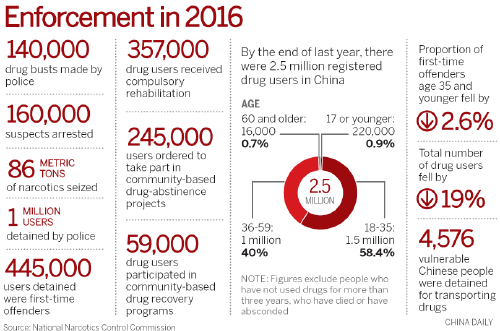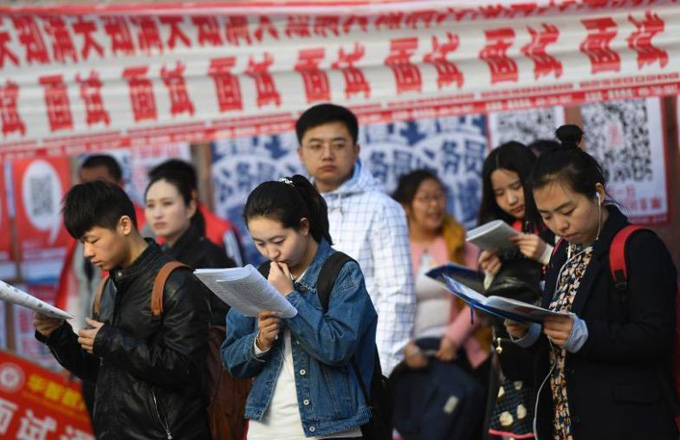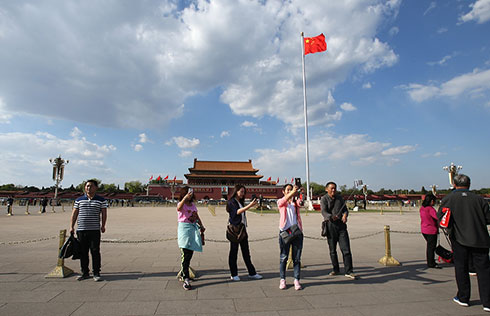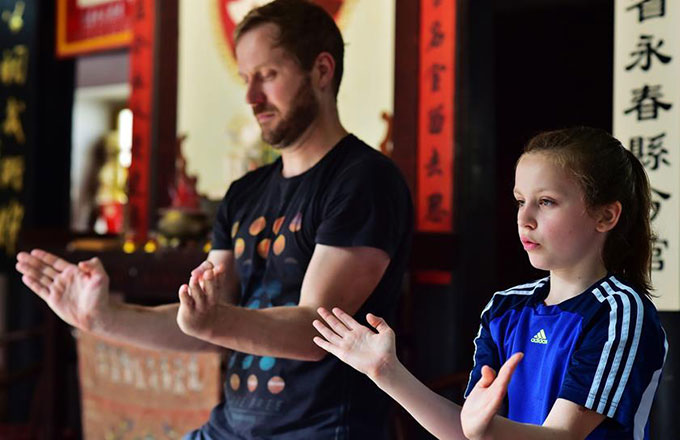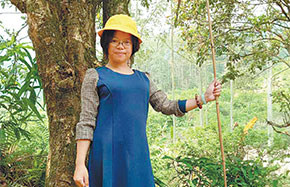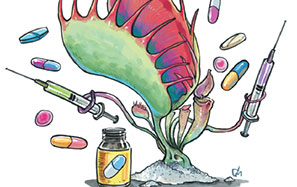Tackling a rising tide of disabled drug mules
The commission said drug trafficking is highly orchestrated by drug lords, and many gangs have formed loose coalitions that allow them to operate cross-border networks. Last year, more than 5,000 drug rings were busted and around 1,100 leading members were arrested.
In the wake of the rising number of drug crimes involving disabled and vulnerable people, law enforcement authorities have decided to adopt an "iron fist" approach to those who deliberately exploit legal protections and loopholes.
On April 20 last year, Tao Guangyu, a blind woman in Nanjing, capital of Jiangsu province, was executed for drug trafficking. It was a rare case of the death penalty being pronounced on a disabled person in a drug case.
The 50-something, a well-known drug dealer in the city, had been apprehended twice before, but had managed to avoid jail by invoking the legal protection offered by her disability.
When she was caught a third time, Tao didn't tell her lawyer, Zhu Yuedong, that she already had two convictions. Instead, she asked him to apply for bail on her behalf.
When Zhu discovered the quantities of drugs Tao had sold, he knew she would receive the death sentence.
Tao's blindness was the result of an inherited condition that worsened progressively until she became almost completely blind in 2011. At that point she began using drugs and also organized family members to traffic narcotics.
She used her father, who is also blind, and her then-pregnant daughter to deliver drugs to buyers. They, along with Tao's brother and sister-in-law, were also jailed for their involvement.
According to the Nanjing Intermediate People's Court, which handed down Tao's death sentence, the number of drug cases has risen in recent years. The use of women as mules has become a prominent theme in drug cases tried at the court, whose statistics show that it tried 13 women for drug trafficking in 2013, but the number doubled in 2015.
Ruan Qilin, a professor of criminal law at the China University of Political Science and Law, said those who use disabled or vulnerable people in drug deals should face severe punishment to prevent the practice from becoming widespread.
He urged authorities to use community correction to supervise convicted traffickers who are unfit for prison so they will not become repeat offenders, and suggested vulnerable people should be allocated more social security benefits so they won't feel the need to make extra money through illegal activities.
